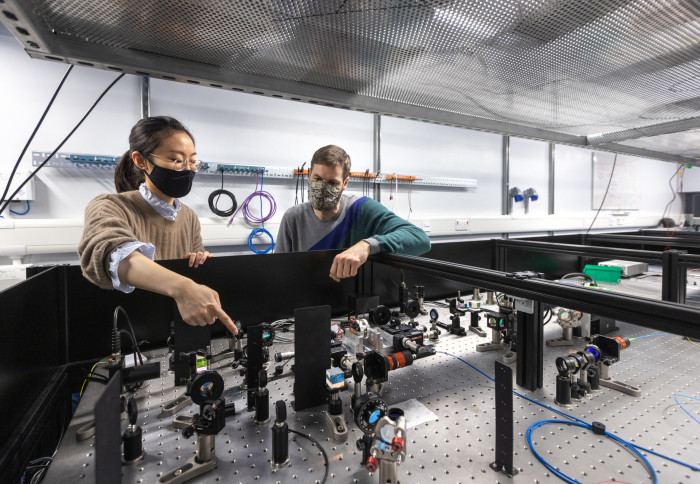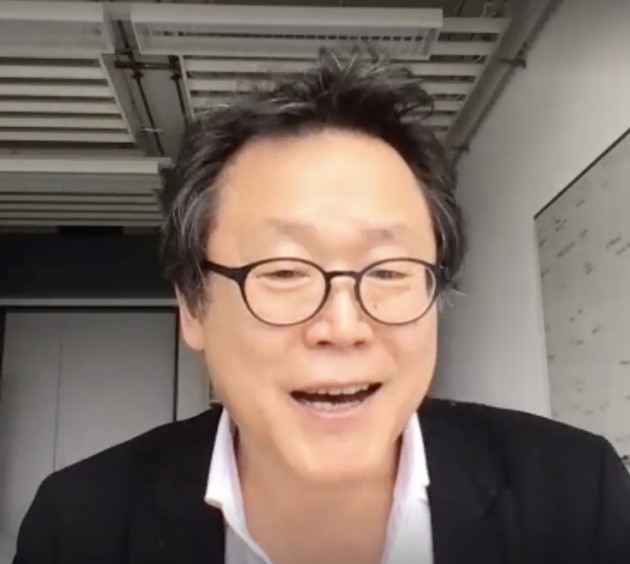Imperial quantum expert speaks to Parliamentary technology forum

Professor Myungshik Kim was the featured guest speaker at the Parliamentary Information, Communication and Technology Forum's recent quantum meeting.
Professor Kim, Chair in Theoretical Quantum Information Sciences at Imperial College London, was representing the College’s Quantum Engineering Science and Technology (QuEST) initiative. He opened by explaining the difference between our current ‘classical’ computers and the new horizons for computing power being unlocked by advances in our understanding of quantum physics. Professor Kim outlined the implications for quantum technologies in areas such as drug discovery, secure communications and tackling climate change.
Professor Kim also communicated the sense of excitement and enthusiasm for quantum research here in the UK, and reflected that government could do more to promote the UK’s leading position in quantum research in order to inspire the next generations of quantum scientists. In closing, he argued that the UK must take steps to maintain its current international competitive advantages in quantum research and technological innovation.

Hearing from business and the wider research community
The meeting heard from Jonathan Legh Smith, Principal for Scientific Affairs at BT. He reflected on the current status of quantum-related technological change in the telecoms sector and the steps that BT are taking to prepare for future change. In addition to quantum developments in traditional communications technology, BT is currently watching scientific progress on quantum sensing with interest. Finally, Mr Legh Smith told the group about a new pilot initiative in London, where BT is investing in a secure network trial using quantum technology in partnership with Toshiba and Ernst and Young.
The final panellist for the session was Professor Andrew Green, Chair of Condensed Matter Physics at University College London. He opened his remarks by reflecting on the timeframe between developments in quantum science and their tangible impacts for business and society. There will be an interval of between five and ten years before the benefits of the current generation of quantum technologies may be fully realised, and Professor Green identified the challenge of maintaining investment, interest and wider enthusiasm for quantum technologies in this gap. Professor Green concluded his comments by underlining the importance of keeping the pipeline of new research and innovation flowing. This can be achieved by making it as easy as possible for researchers and businesses with new ideas to study, build and trade here, and that is an area where government leadership can make a pivotal difference.
Building the UK’s future research and computing capacity
After thanking the speakers, panel Chair Darren Jones MP opened the floor to questions. In the Q&A, Professor Kim was asked how government action can make the UK a better place for world-leading quantum research, and he responded with a call for improvements to international student funding provision tailored to the emerging need for quantum skills and talent.
Other topics touched on in the discussion were better support for start-ups seeking to scale up their quantum-related businesses in the UK, the role of government in communicating the UK’s quantum advantages internationally as a way to attract business and research talent, and the related topic of ‘sovereign computing’ capacity as a key element of the wider UK drive to improve innovation in emerging technologies.
A full recording of the PICTFOR meeting is available here.
More information about Imperial College London’s Quantum Engineering Science and Technology (QuEST) initiative can be found here.
QuEST’s participation in the PICTFOR panel was supported by Imperial Policy Forum. To find out more about Imperial Policy Forum’s work connected Imperial researchers with policymakers, visit the IPF website.
Article text (excluding photos or graphics) © Imperial College London.
Photos and graphics subject to third party copyright used with permission or © Imperial College London.
Reporter
Craig Whittall
College Headquarters